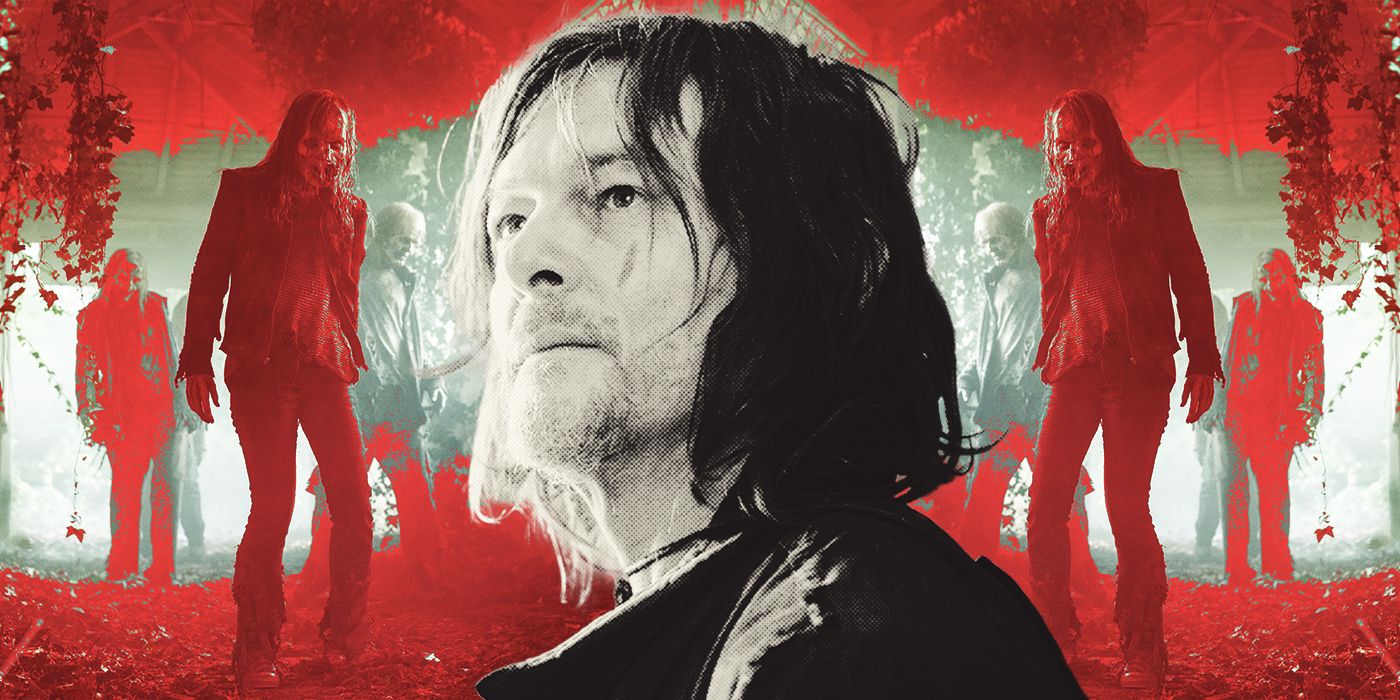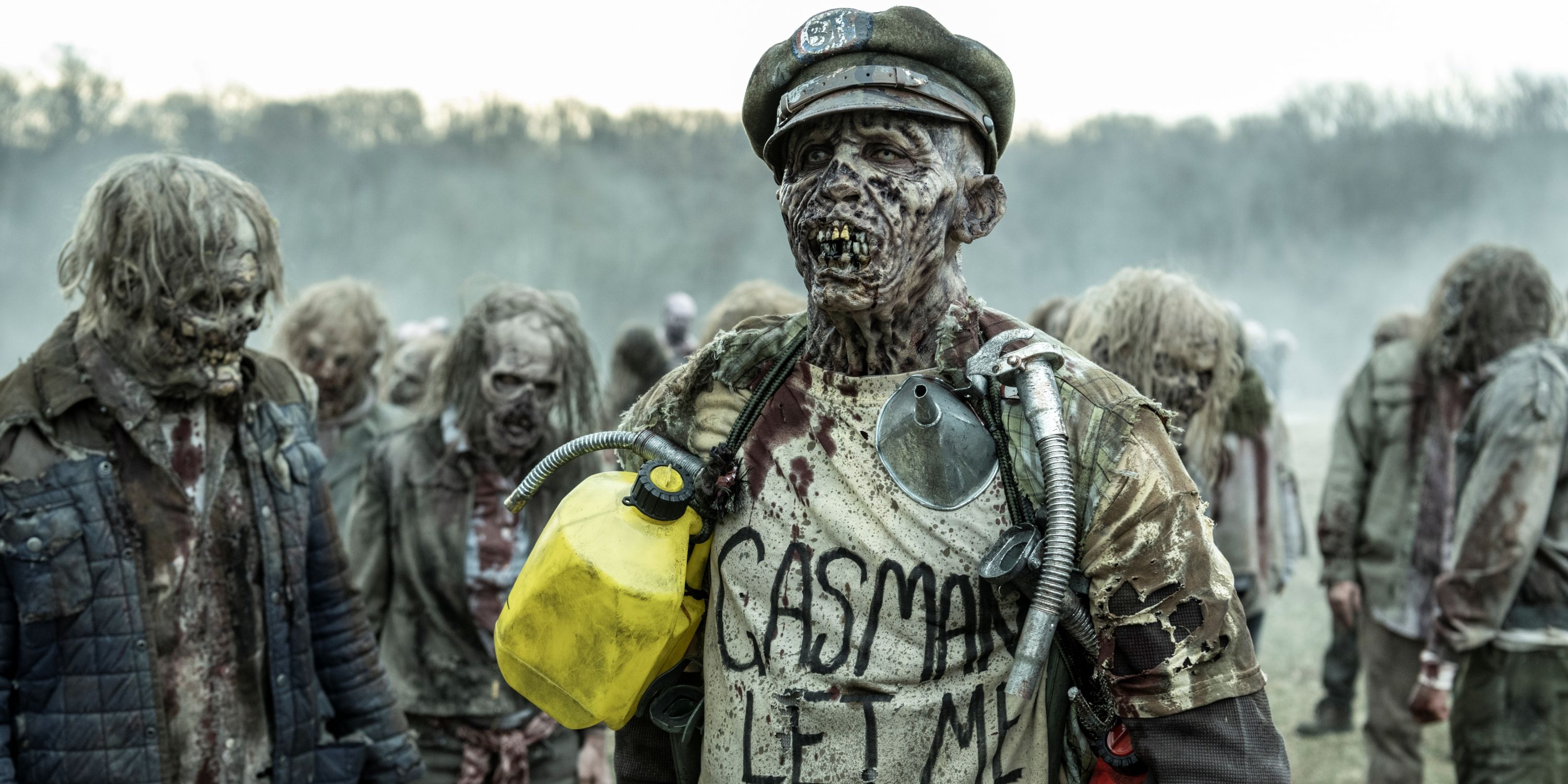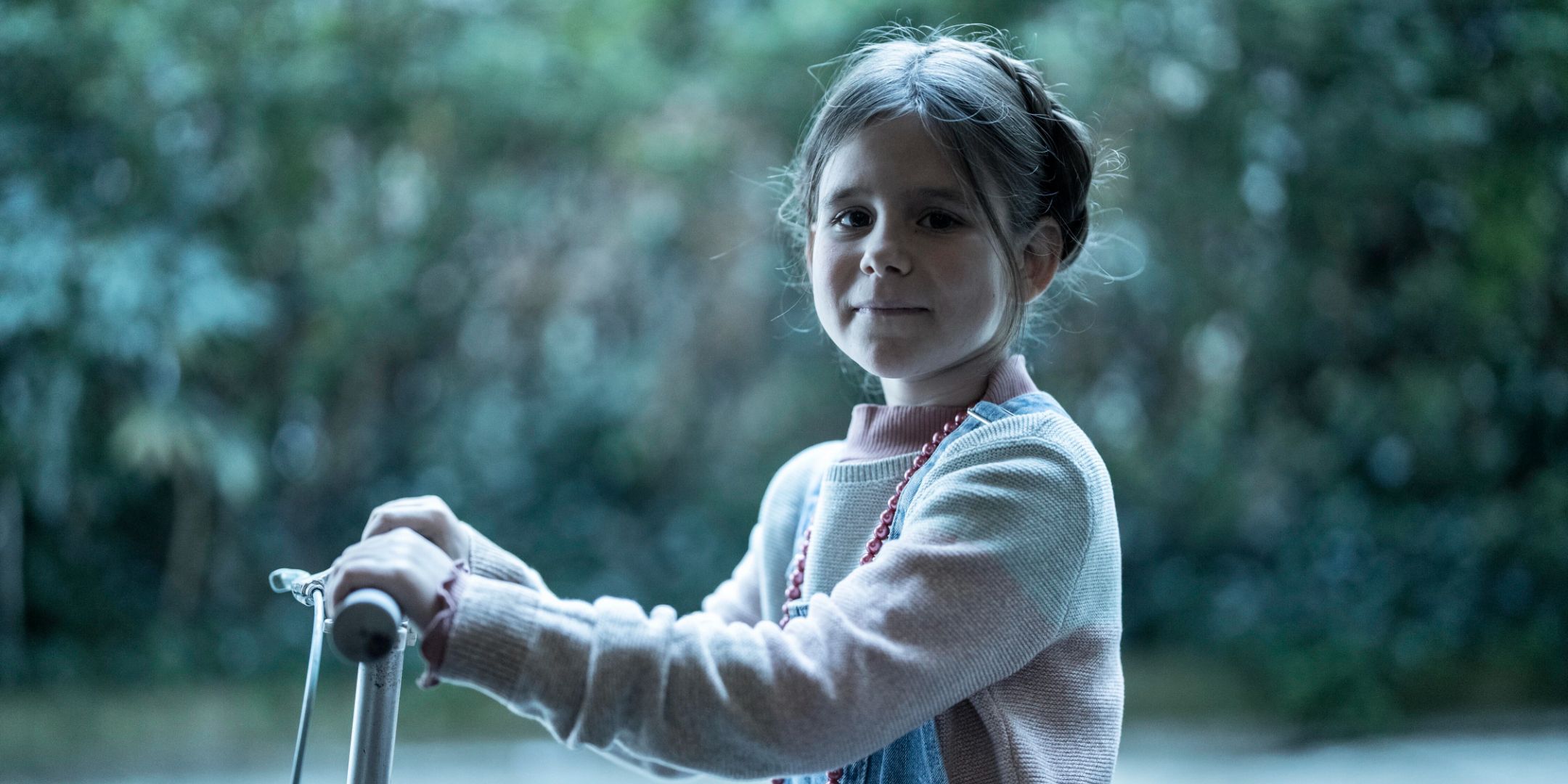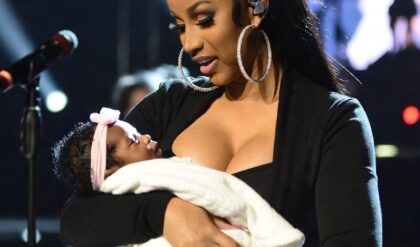
When approaching the first season of The Walking Dead: Daryl Dixon, series creator David Zabel had the ambitious goal of breathing new life into the franchise, as they brought in new writers, a new showrunner, and most notably, an entirely new location. As Zabel and executive producer, Greg Nicotero, told Collider at San Diego Comic Con 2024: they “reinvented the show in a different country.” While they certainly achieved this by the brilliant move of expanding The Walking Dead to France, which is ground zero of the apocalypse, there is another overlooked way they approached the show that really cemented its novel and horrifying feel.
As Nicotero also explained during SDCC, “the zombie action and that stuff really directly relates to the story. It’s not just thrown in there.” Compared to the flagship show and its recent slew of spin-offs, the walkers are placed into Daryl Dixon‘s narrative in a purposeful and scaled-back manner. This is what truly makes Daryl Dixon stand out. Their meaningful approach becomes even more significant when you consider the walker’s history in The Walking Dead, as they became increasingly more dismal and inconsequential as the original show progressed. As such, Daryl Dixon gives them the spotlight they deserve by making them the dangerous, exciting, and revolting creatures they are supposed to be.
Walkers Are Genuinely Dangerous in ‘The Walking Dead: Daryl Dixon’

The Walking Dead pilot was the prime example of using walkers in a thoughtful way, as each walker that Rick Grimes (Andrew Lincoln) came across elicited a visceral reaction and enhanced the post-apocalyptic dread in the atmosphere. As the series progressed, it became easier to ridicule the walkers, mainly because they were so easy to dispatch. Even in the new spin-off, The Walking Dead: The Ones Who Live, Rick and Michonne (Danai Gurira) have plenty of scenes where they flaunt their skills and take down countless walkers as if they were swatting away gnats. As such, Daryl Dixon completely flips the script on walkers, and instead uses them sparingly and in lower numbers, giving us genuinely frightening sequences where they become threats. Who knew walkers could actually be dangerous again?
The show sets up this subversion of our expectations almost immediately, as Norman Reedus‘ titular character washes upon the shores of France and heads into a derelict warehouse, where he comes face to face with a couple of Burners. These new types of walkers take him unawares, and he struggles to fend them off. We see a more high-stakes walker fight later in the season, when Daryl is captured by Genet’s (Anna Charrier) people and is forced to fight an Amper — a supercharged walker created in French labs — in a gladiator-styled arena. Wielding an axe and his wits, Daryl fights to the death in a thrilling action sequence, where concern is etched upon his expression. When was the last time you remember seeing a character reasonably worried about a fight against a single walker? He thrashes and dodges away from the frenzied creature — and we all know how accomplished Daryl is, making the prospect of these walkers so much more terrifying.
We Finally Feel Revolted By Walkers Again in ‘Daryl Dixon’

As the essence of the apocalypse, walkers slowly lost their bizarre, horrific, and revolting charm in the original series, and instead became painfully uniform and arbitrary. This is not because of the walkers themselves, who were masterfully created through Nicotero’s “Zombie School,” but because of how they were treated and the narrative surrounding them gradually became lackluster. They simply started blending into each other, each more forgettable than the last, as they all became fodder for each character’s weapon of choice. Daryl Dixon, however, refuses to let its walkers fade away from the limelight, and instead delivers memorable visuals that will forever be ingrained into our minds. More importantly, the sight of these walkers curdle our stomach in a sickening way, just as a reanimated corpse should.
The most unforgettable image is by far the walker orchestra — equal parts awe-inspiring and unhinged, that deftly taps into the insanity of the apocalypse. Daryl’s unsettled and uncertain face as he gazes upon the deranged scene perfectly captures the impact it evokes. We are not entirely sure of what we are seeing, but we feel the poignant loss of humanity in a saddening and hollow way we haven’t experienced before in The Walking Dead. Each sanctuary in the original show and its brutal ways has repeatedly captured the lack of morality that comes with the apocalypse, but this madman’s creation symbolizes a twisted form of artistry that truly shows how long they have been in this post-apocalyptic world. A similar sentiment is evoked when we come face to face with a child walker in Daryl Dixon. Child walkers always give us a haunting glimpse into the loss of innocence, yet they rarely appear in the franchise. Bringing one in reflects the creator’s thoughtful approach to walkers, as much of Daryl Dixon‘s horror stems from this agonizing depiction of walkers who are difficult to look at.
On the other hand, Daryl Dixon‘s new variants create a different kind of surreal atmosphere, one that builds terror rather than emotion. We particularly see this when Daryl fights off the Burners, as each fleeting touch creates an abundance of smoke, giving each action sequence a mystical touch and appeal. There is almost a voyeuristic approach to the walkers, as imagery becomes paramount in what sort of response they elicit. Each walker in Daryl Dixon demands our attention, no matter how grotesque or other-worldly they appear. The apocalypse is already such a fantastical concept and Daryl Dixon provides us with a range of unique walkers that all evoke a surreal eeriness that a walker should evoke.
‘The Walking Dead: Daryl Dixon — The Book of Carol’ Will Make Walkers Even More Exciting
While it is easy to attribute Daryl Dixon‘s success with walkers to the experiments being conducted on them, it is really their deliberate and earned storytelling that gives justice to the walkers. The experiments are really just a tool to do so. As such, during SDCC, the crew further teased that Season 2, subtitled Book of Carol, would also introduce us to even more variants. If Season 1 is anything to go by, then we can be excited about the prospect of even more grotesque apocalyptic creatures that cultivate the fear that walkers deserve to create. Being able to construct this anticipation surrounding walkers is a feat in itself, especially as the original show’s focus tended to remain on how cruel the sanctuaries could be, essentially neglecting the walkers. We began looking forward to the next group of Saviors or Whisperers, rather than the next faceless hoard of walkers. As such, by introducing the French labs and pairing this storyline with a pared-back execution, Daryl Dixon finally gives the walkers their own stage to create disgust, fear, and dread.





